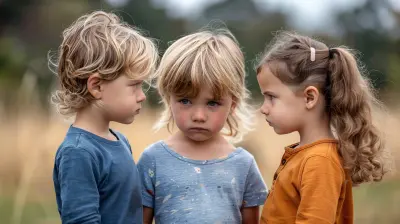Teaching Your Kids to Apologize and Forgive Each Other
3 October 2025
We’ve all been there. One minute, your kids are playing peacefully. The next? Someone’s screaming, someone’s crying, and someone probably just threw a toy across the room. Sibling conflict—it’s part of the package deal of parenting. But what happens after the fallout? That's where the real learning kicks in.
Teaching your kids to apologize and forgive each other doesn’t just smooth things over—it helps build strong emotional foundations that last a lifetime. In a world that could use a little more kindness and empathy, this lesson might just be one of the most important ones we teach at home.
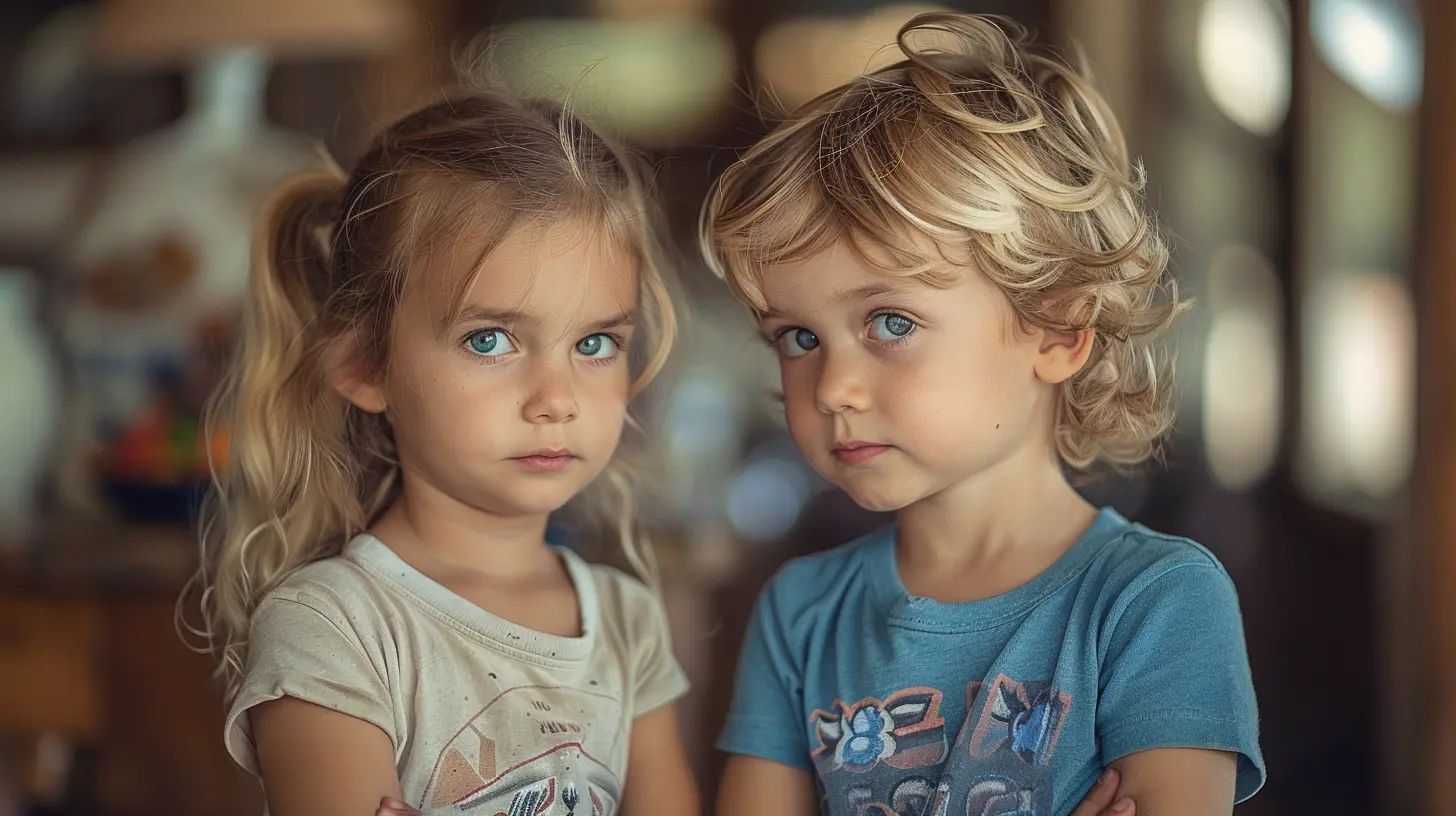
Why Apologizing and Forgiving Really Matter
Let’s face it—everyone messes up. Even the best of us lose our cool, say something we shouldn’t, or hurt someone unintentionally. The ability to own up to mistakes and forgive others is what keeps relationships strong and healthy. And that goes for our kids’ relationships too—especially the ones with their siblings.These early interactions are their first lessons in conflict resolution, showing them how to handle disagreements, mend hurt feelings, and move forward without holding onto grudges. It's emotional muscle-building.
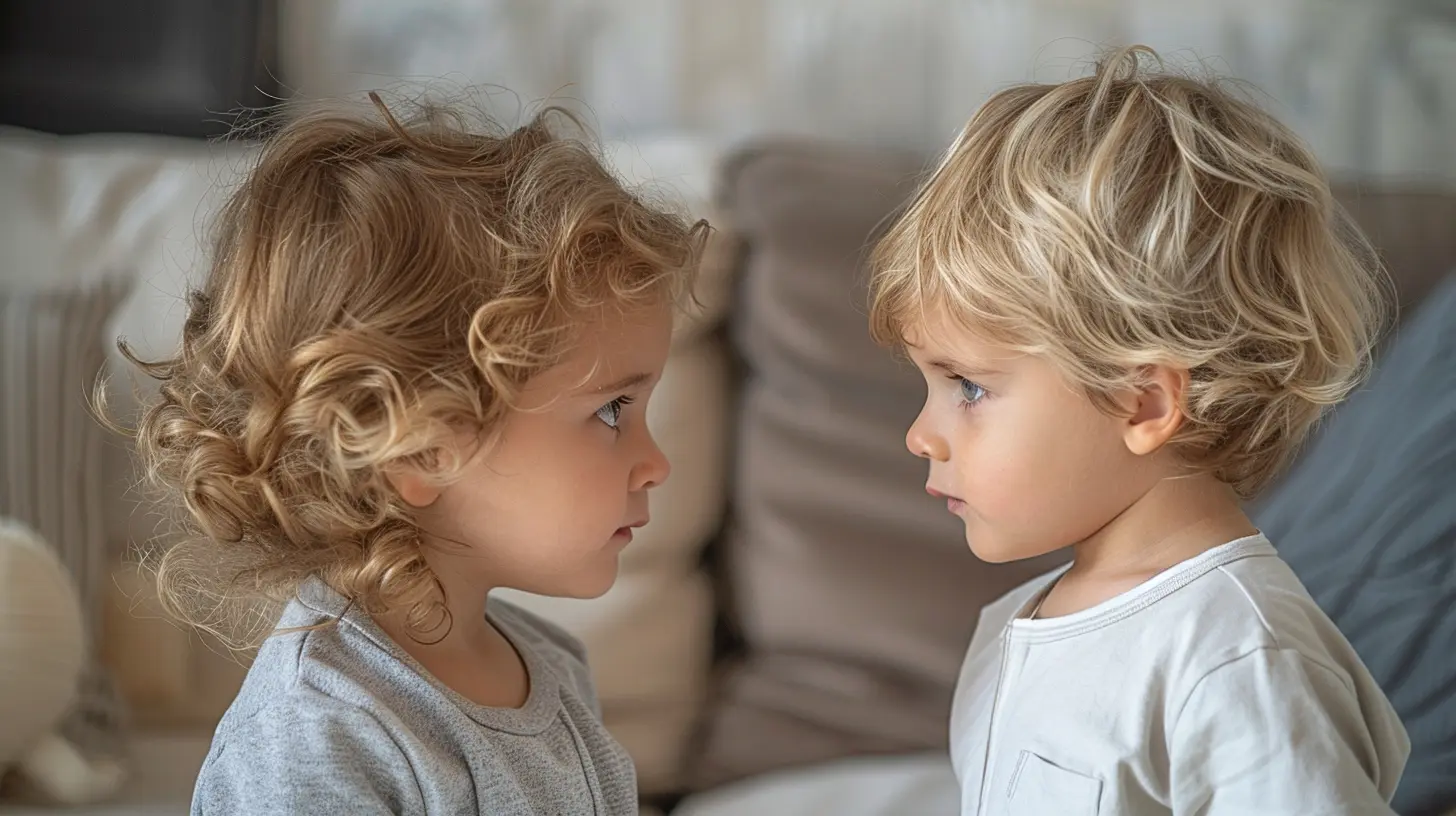
The Challenge of Sibling Dynamics
Kids aren’t born knowing how to say “I’m sorry” or accept an apology with grace. Just like walking, talking, or tying their shoes, it’s something they need to learn and practice. Sibling squabbles are often emotional battles—fueled by jealousy, competition, or just plain old fatigue.The key for us as parents is to treat each of these moments not just as a hassle (though yeah, sometimes it totally is), but as a teachable moment.
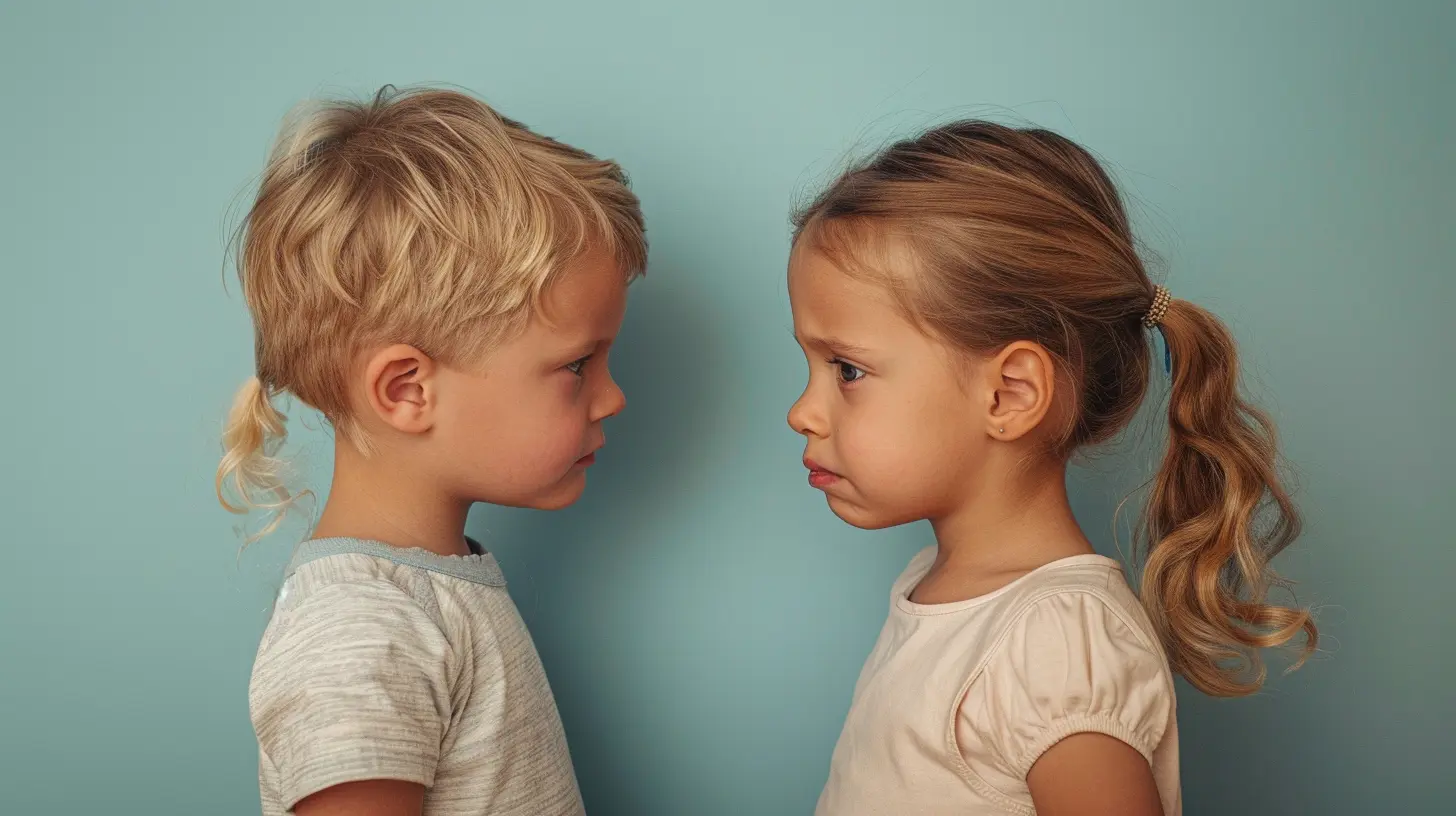
Step One: Model the Behavior You Want to See
Kids are little mirrors. They watch how we handle things way more than they listen to what we say. If we mess up—and let’s be honest, we all do—they're watching to see whether we take responsibility.Say this:
“I’m sorry I was short with you earlier. I was feeling overwhelmed, but that’s not your fault.”
By apologizing to your child (or your partner), you’re showing them that everyone makes mistakes—and that what matters is how we repair those mistakes.
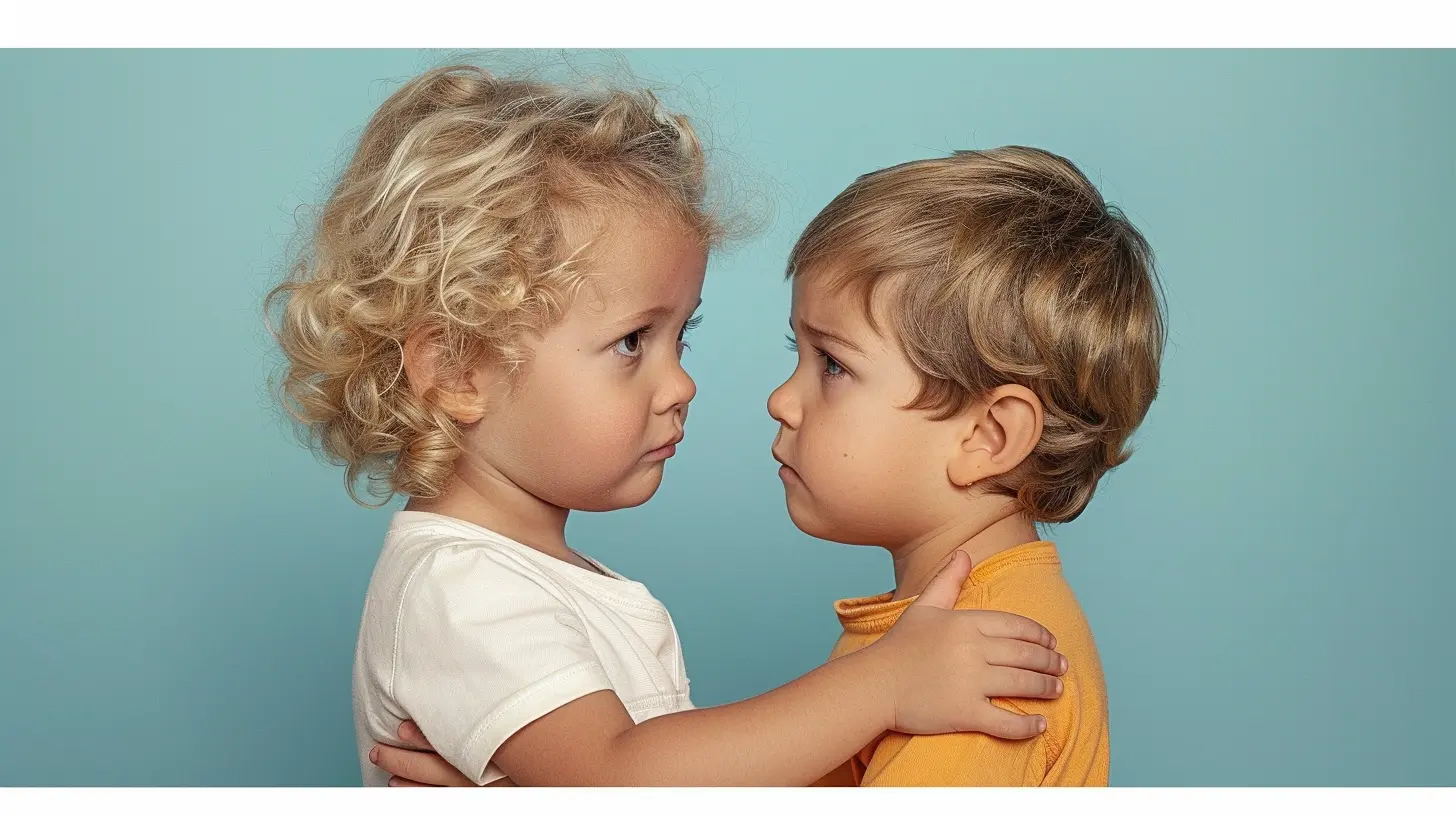
Step Two: Teach the Parts of a Good Apology
Simply saying “sorry” isn’t enough. Sometimes it’s just a word tossed out to avoid getting in more trouble. A real apology has a few key ingredients:1. Acknowledgment of the hurt – "I'm sorry I took your toy while you were playing."
2. Taking responsibility – "I shouldn’t have done that. It wasn’t kind."
3. Making amends – "Can I do something to make it better?"
4. Commitment to change – "Next time, I’ll ask before taking it."
Yes, this is a lot for a five-year-old. But don’t worry—kids absorb way more than we think. Start small and build over time. Even just encouraging them to name why they’re sorry is a big first step.
Why Forced Apologies Backfire
We’ve all done it: “Say you’re sorry... NOW.”But when we force an apology, we're often just teaching kids to go through the motions. It becomes a checkbox, not a meaningful experience. Worse, it can make kids feel shame or resentment instead of empathy.
Instead of demanding an immediate apology, create space. Say something like:
> “It looks like you’re both still feeling upset. Let’s take a few minutes to cool down, and then we’ll talk about what happened.”
Let them get calm first. Real apologies come from a regulated state of mind—not while emotions are boiling over.
Step Three: Help Them Put Feelings Into Words
One of the biggest reasons young kids struggle with apologies is that they can’t always explain what they’re feeling. All they know is that they’re mad... or hurt... or both.Help them by giving them the vocabulary:
- “You seem frustrated that she took your book. Is that right?”
- “It hurt your feelings when he said that. Do you want to tell him how you feel?”
Once they can name their emotions, they’re one step closer to understanding the impact of their actions—and offering genuine apologies.
Step Four: Normalize Forgiveness (But Don’t Force It)
Just like apologies, forgiveness can’t be forced. When a kid says “I forgive you,” it should mean something. That doesn’t mean we just let things fester if someone’s still upset, though.Help your child understand that forgiving someone isn’t about saying what happened was okay—it’s about letting go of the hurt and giving the relationship a chance to heal. Acknowledge their feelings, and let them forgive in their own time.
Say something like:
> “You’re still feeling upset right now, and that’s okay. When you’re ready, we can talk more about what forgiving your sister might feel like.”
Real-Life Examples Work Wonders
Sometimes, the best way to teach these concepts is through storytelling. Whether it’s a book, a movie, or something from your own life, use relatable examples to spark conversation.Try saying:
“Remember in that movie when the two friends had a fight? What helped them feel better again?”
This opens the door for reflection and connection, in a way that feels safe and natural.
What If They Won’t Forgive Each Other?
It’s hard to watch your kids hold onto anger. But sometimes, kids just aren’t ready to forgive. That’s okay. We can’t force emotions, but we can encourage empathy and open communication.Keep reinforcing the idea that relationships are stronger than mistakes. Help them see their sibling as more than just the “enemy” in that moment. Over time, with your support, forgiveness usually follows.
Encourage Repair Over Punishment
Instead of focusing only on consequences when kids fight, shift the focus to repairing the relationship:- Can they draw a picture to say sorry?
- Can they help with a chore the other sibling normally does?
- Can they write a note or give a hug (if both are open to it)?
This doesn’t mean there are no consequences—it just means we prioritize healing over shame.
Make It Part of Your Family Culture
Consistency is where the magic happens. These little lessons add up over time. Make kindness, responsibility, and forgiveness part of your family’s daily rhythm.Maybe it's a regular check-in at dinner:
“What’s one kind thing you did today? Or one thing you wish you’d handled differently?”
Maybe it’s a bedtime chat, or even a family mantra like:
“We say sorry when we mess up. We forgive when we’re ready. We grow together.”
Whatever works for your crew, keep it real and keep it going.
Understand That It’s a Lifelong Skill
Your kids aren’t going to become apology pros overnight. Heck, most adults still struggle with sincere apologies and true forgiveness. But the seeds you plant now? They’ll grow into resilient, emotionally intelligent adults who know how to navigate relationships with grace and empathy.Let’s Recap
Raising kind, empathetic, and emotionally aware kids takes effort, patience, and a whole lotta deep breaths. But it's worth it.Here’s the quick rundown:
- Lead by example – Show them how to apologize by doing it yourself.
- Break down the apology – Teach what a real apology includes.
- Avoid forcing it – Forced apologies aren’t sincere. Give it time.
- Help them name emotions – Words give kids power over their feelings.
- Don’t rush forgiveness – Let them forgive in their own time.
- Focus on repair, not punishment – Healing the relationship matters more.
- Keep practicing – This is a muscle. The more they use it, the stronger it gets.
Final Thoughts
Letting kids learn how to apologize and forgive each other isn’t about keeping the peace in the moment (although yeah, it definitely helps). It’s about giving them tools that will serve them throughout life. Whether it’s with friends, family, future partners, or teams at work—it all starts with understanding how to say "I'm sorry" and how to say "I forgive you."So keep guiding them. Keep showing up. Keep having those messy, meaningful conversations. You're not just raising siblings—you’re raising future humans who know how to do relationships right.
all images in this post were generated using AI tools
Category:
Sibling RivalryAuthor:

Austin Wilcox
Discussion
rate this article
1 comments
Angela Hensley
Teaching kids to apologize and forgive fosters empathy and emotional intelligence. Encouraging open conversations about feelings helps them understand the impact of their actions, strengthening relationships and promoting a supportive family environment.
October 17, 2025 at 4:48 PM

Austin Wilcox
Absolutely! Teaching kids to apologize and forgive builds empathy and emotional intelligence, which are essential for healthy relationships and a supportive family environment.


